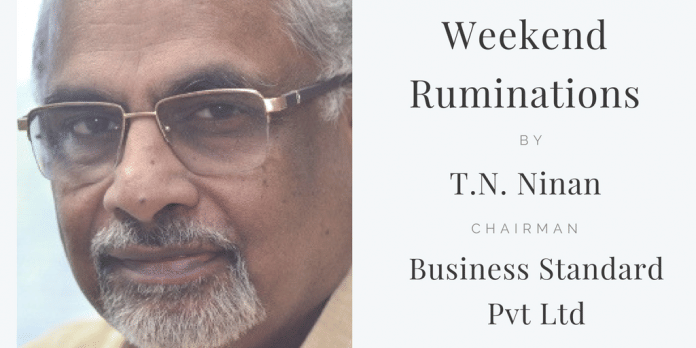Scandals can be useful opportunities for systemic correctives. The Gorakhpur children’s deaths has been a scandal wasted.
The Gorakhpur debate, as to whether children died at the hospital because of a shortage of oxygen or for other reasons, matters very much in terms of individual criminal liability for those who failed in their duties. From a broader perspective, though, it should not be the main point of focus. Even if it is contended (in the face of specific parental accounts) that children did not die for lack of oxygen, the gross mismanagement of oxygen supplies was indefensible in itself, and criminally negligent because children could have died.
But focusing primarily on this specific question of whether deaths occurred as a direct result of the lack of oxygen or for other reasons takes one’s attention away from the larger and systemically more important question of how the hospital was being managed (or mismanaged), the rackets of various kinds that were apparently flourishing in the hospital (including, it would seem, the theft of oxygen cylinders), the probability of kickbacks being demanded for payments to be cleared, the poor budgetary prioritisation reflected in the sharp slashing of outlays for medical education, the general lack of hospital cleanliness and hygiene, and the poor state of public health programmes that have led to the endemic spread of encephalitis in eastern UP.
All of these are more important questions, indeed they are as urgent as the issue of deaths on account of lack of oxygen, and they are more difficult to deal with because you cannot get away by simply arraigning a doctor or two and a supplier.
The government’s defence, in response to the charge that the lack of oxygen caused children to die, is that many more have died during periods when there was oxygen available. But what sort of defence is it for a government to say that hundreds of people die every year, in the ordinary course, because of encephalitis?
If the issue is that the problem was endemic, not specific to any government, the point is easily conceded that Akhilesh Yadav and his predecessor(s) are as responsible as Yogi Adityanath if not more, in that they were in office for five years whereas the Yogi has had only four months. But the solutions have to come from the present chief minister; and they will come more quickly if the focus stays on the continuing deaths from encephalitis. The tragedy in Gorakhpur did not end when oxygen supply was restored.
At its core, the problem is with what is considered normal, because this particular kind of normal should be unacceptable. Seventy years after Independence, the real tragedy — especially in what are called the Bimaru states — is that the Gorakhpur hospital is not an isolated example but a typical case of a public health institution caught in the usual mix of negligence and maladministration. And it is a pity that, in his Independence Day speech, Prime Minister Narendra Modi lost an important opportunity to use the Gorakhpur episode to focus on this larger question.
The two primary factors that are a blot on India’s human development record are its poor education and health attainments — worse than they are in a much poorer Bangladesh, for instance. These also happen to be the critical factors that lie at the root of growing inequality — poor education blocks the poor person’s avenues for upward mobility, and health episodes push families back below the poverty line.
Mr Modi has launched dozens of schemes in the three years and more that he has been in office; he should have used the shock caused by Gorakhpur to mobilise national opinion and launched twin campaigns on public health and quality education at the primary and secondary levels, backed them up with increased outlays, and in the future followed up with regular monitoring of progress. It is a pity that he chose the alternative path of making a cursory reference to Gorakhpur before moving on to other issues. Like crises, scandals too can be useful opportunities for systemic correctives. This has been a scandal wasted; more’s the pity.
By Special Arrangement with Business Standard







Very difficult to detect any sense of remorse or contrition in the way the administration has responded to this man made tragedy. Expecting Shastriji’s grandson to resign may have been unrealistic, but the effort to erase the role non availability of oxygen played in the deaths of several infants is callous, cynical. Equally heartless was the injunction to the police to celebrate Janmashtmi on a grand scale. The state of public hygiene in Gorakhpur, which contributes to the spread of this disease, was pointed out by Ms Tavleen Singh on a recent visit. Systemic improvements in public health institutions there must be, but the state administration must first take ownership of this individual failure.